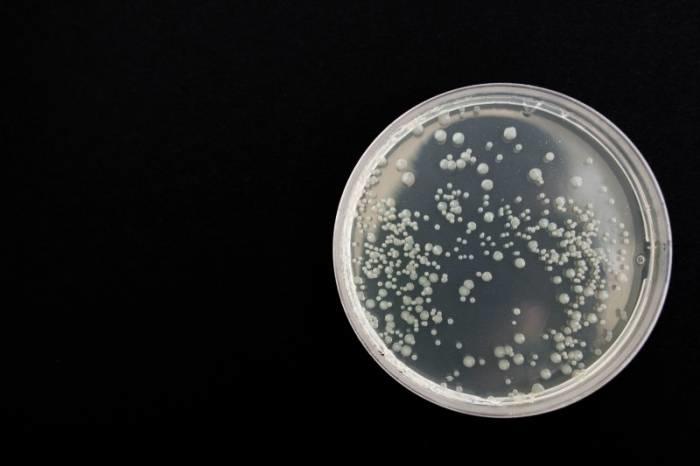
Do You Need to Expand Your Vocabulary to Study Biology?
As we have discovered, Biology is a very broad subject covering a huge number of topics. As such, there is also a vast amount of terminology to get your head around.
But what if you only plan to take Biology at GCSE level, and then want to move onto a whole different area of studies? Do you still need to put in effort learning lots of scientific terminology even though you may never use it again?
The scientific study of living creatures, including their anatomy, lifespan, adaptability, and environments, is the focus of GCSE Biology. It is a step higher than AP biology.
Because breakthroughs and discoveries affect us all, they frequently reach the front pages of newspapers. Biology affects us all, from developing new therapies to harnessing biotechnology to using molecular biology techniques to improve the food supply.
It is a massive natural science with many unifying elements that tie it into a single, understandable topic. All cells in all animals, for example, process genetic data encoded in genes that can be passed down to future generations.
Since Biology is the Science of Life, and therefore teaches us all about humans, as well as our environment, the chances are that you will naturally stumble upon basic Biology terminology during your everyday life, so learning this key vocabulary shouldn't exactly be much of a strain.
Also, by grasping the key terminology of GCSE Biology, then you will find it much easier to grasp new biological words and terms should you choose to further your education within the subject area.
However, because we are aware that not everyone aspires to study Biology through to A Level and beyond, we will focus primarily on the bare essentials, starting with the topics that you will study as part of your two-year course.

At this foundation level, though, you will surely come to realise that the language you first thought was a bit baffling actually isn't that difficult at all!
Topics in an AP Biology Course
Several biology subjects will be covered in an AP Biology course. Some topics will be covered more thoroughly in the course and on the exam than others. The following topics are covered in the course; however, they are not limited to them:
Here are some definitions of key terminologies to help you get a head start on your AP Biology study.
Chemistry of Life
Life chemistry connects all of the major biomolecules and how their composition correlates to their functionality. This unit lays the groundwork for understanding the chemical foundations of life, which is required for the remainder of the course.
This unit emphasizes the properties of carbohydrates, lipids, proteins, and nucleic acids and how they connect with one another and other molecules. Carbon is particularly significant for this section because carbon is found in all macromolecules.
Cell Structure and Function
The second component of Unit 2 of the AP Biology coursework focuses on how cells' many biological components keep the cell alive and collect energy.
This standard divides cellular organelles into two broad operational subgroups: those that sustain and develop the cell and those that acquire and use energy. As a result, you'll study how the endomembrane system constructs a cell, as well as how chloroplasts and mitochondria collaborate to create energy!
Cellular Energetics
This section of the AP Biology coursework is designed to give students an outline of what energy is, how it is governed, and how cells must work to satisfy these rules, survive, grow, and reproduce.
Though the following portions of the AP Biology curriculum delve deeper into the intricacy of those processes, we'll focus on how cells develop highly ordered systems of enzymes and combine exothermic events with endothermic reactions to save energy as efficiently as possible in this section.
Cell Communication and Cell cycle
The many distinct ways that cells communicate are the subject of this section of the AP Biology syllabus. We'll begin by looking at the signal transduction process.
This happens when a chemical or physical signal activates a receptor protein, causing it to accelerate a reaction on the interior of the cell membrane. Signal transduction then triggers a chain of events from the initial receptor protein to a biological response.
We'll look at how several types of cellular communication are categorized based on the distance the signal must travel once we've looked at this process. As we'll see, many immune system reactions are triggered by cell-to-cell contact.
Then we'll look at some paracrine signals that only affect surrounding cells, such as neurotransmitters. Finally, we'll examine how the endocrine system coordinates an organism-wide reaction to a stimulus by sending endocrine signals throughout the body!
Heredity
Heredity refers to the theory of passing genetics along from progeny to progeny.
Gregor Mendel, who found the basic rules of inheritance that we still apply nowadays, was the first to illustrate heredity. While many qualities do not follow these guidelines, his work nonetheless serves as a framework for studying gene inheritance over generations.
The environment can also influence which features in a populace become more common. This trait will be more widespread in the population than the others if one phenotype affords individuals a better probability of survival and reproduction.
Gene Expression and Regulation
Gene regulation is the process by which a cell determines which of the numerous genes in its genome are "turned on" (expressed).
Even though practically all of your body's cells carry the same DNA, gene regulation allows each cell type to have a unique collection of activated genes.
Natural selection
One of the most important aspects of evolution is natural selection. Using "survival of the fittest" can genuinely affect the phenotypic ratios of species and populations.
People who have features that help them survive are more likely to survive and pass those traits down to their children.
Ecology
Ecology is the study of how organisms connect with one another and their surroundings. This can be witnessed on a limited scale, inside populaces, and on a broader scale, in ecosystems, and across the world.
Relationships between species are complicated and constantly evolving. We are always reacting to our surroundings and those around us.
Some of the most serious issues confronting our planet nowadays are the leading causes of the changing landscape of ecosystems worldwide.
Check for online Biology courses here.

Variation
Variation, in biological terms, refers to any differences between cells, organisms or groups of organisms caused by genotypic variation. This can also indicate any differences caused by environmental factors, specifically called phenotype variation.
See some marine biology courses here.
Contemporary Vocabulary
As we have explored in some of our other posts re biology, contemporary scientists don't feel that educational courses reflect the new advancements in Biology.
Advances in technology are forever changing what we are capable of doing and finding out, not just in the world of science, so it is inevitable that this modern technological era has has a huge influence on Biology in recent years, as shown by the outstanding breakthroughs within the field,
In fact, modern molecular Biology relies very heavily on new technologies. However, the technological components of Biology courses at this level have scarcely changed over the last few decades.
Scientists believe that modern Biology courses, if they want to really encourage young biologists and give them a real insight into the live science as it exists today, should bring courses up to date and make them more relevant to the discipline.
While it seems that Physics is growing with the times, professionals from the Biology sector do not feel that their subject field is given the same level of sophistication within education and therefore aren’t given the basics needed to truly understand things like DNA sequence alignment or gene prediction algorithms.
These concepts, which are described as bioinformatics, are important to contemporary biologists and therefore so is the vocabulary linked to them too.
Find out more about how to teach your kids about Darwin.

Where to Find More Vocabulary Lists And Glossaries
If you are keen to discover more biological words and their definitions, then why not turn to your textbook first of all for some help. Most scientific textbooks will include a glossary of terms which can be used as revision or to simply be on top of the complex language that crops up during each lesson.
Alternatively, if you are on the search for a far wider list of biological terms, then you can find many vocabulary lists online. Sites such as vocabulary.com and myvocabulary.com, for instance, have compiled a collection of 100+ words each that have relevance to Biology.
How Can a Tutor Help You With Essential Vocabulary?
If you do happen to be struggling in Biology and think a bit of A Level biology help might help to relieve some of the pressure of exams, why not hire a biology tutor who may be able to go over key terminology with you every week and help you out create flash cards containing essential vocabulary on them.

Inheritance describes the process of passing characteristics from parent to child. Photo credit: manhhai via Visualhunt / CC BYAlthough a good a level biology tutor can be a bit pricey, it is money well invested if it means that you complete your course with a top grade, or even manage to attain a higher grade than you had previously thought possible. You can also opt for biology online tutoring which might be less expensive as it is more flexible.What Will You Gain From Studying GCSE Biology?
You will learn about critical biological principles and gain a broad understanding of biological systems, allowing you to build a solid foundation for the future.

Biology GCSE students learn about the diversity of living organisms, as well as their structures and functions. The course teaches ecology, the environment, reproduction, and the structure of living organisms to provide a broad understanding of biological systems not typically taught in high school Biology class.
By studying GCSE biology, you gain a better understanding of what is going on inside you and in the world around you. You'll learn about life and the creatures that inhabit it. Consider how each organism is formed, how it grows, functions, and what environment it thrives in. It is a thrilling ride.
Essential vocabulary that will help you in AP biology
As previously stated, there are eight major AP biology topics:
Life's chemistry
- Acid – a substance that gives back a proton (H+) once diluted with water.
- Amino Acids – a carbon-based chemical compound that comprises proteins.
- Atoms – smallest fundamental constituent of matter.
- Base – a completely dissolved in solution chemical agent that receives a proton (H+).
- Chemical Reactions - the breakdown and formation of chemical bonds that cause compounds to transform into distinct ones.
- Covalent Bonding – chemical bonds created when 2 different subatomic particles exchange one or more pairs of electrons.
- Glycerides – a fatty acid ester of glycerol
Cell Structure and Function
- Cell – the smallest unit of matter capable of carrying out all daily life processes; a basic unit of structure and function in all organisms.
- Unicellular - a cell that has one cell.
- Multicellular - made up of several cells.
- Cell Membrane - the protective layer that covers a cell.
- Cell Wall - a hard layer that borders and protects the cell membrane of plant cells.
- Cytoplasm – a water-based liquid that occupies most of a cell's volume.
- Organelle - a component within a cell that performs a certain life process.
- Nucleus - the central component of a cell that acts as a command center, guiding the majority of the cell's activity.
- Nuclear Membrane - the border that encircles a cell's nucleus.
- Nucleolus - a small spherical body inside a nucleus that carries RNA and proteins and plays a role in ribosome formation.
Cellular Energetics
- Metabolism is how an organism accumulates or depletes resources through a series of chemical reactions.
- Anabolism is a set of processes that require energy to produce bigger compounds from lesser ones.
- Catabolism - Metabolic paths that decompose molecules, releasing energy.
- Energy is the capacity to perform tasks, accelerate processes, and combat entropy.
- Entropy is a gauge of a system's dysfunction.
- ATP (adenosine triphosphate) is the most common energy supply used by cells.
- ADP (adenosine diphosphate) is formed when a phosphate group from ATP is removed, and energy is released.
- Free energy - Quantifies the fraction of a system's energy that can execute work when temperature and pressure are homogeneous all through the system, as in a living cell.
Cell communication and cell cycle
- Adenylyl cyclase - An enzyme that responds to a chemical signal by converting ATP to cyclic AMP.
- Cyclic AMP (second messenger) - a ring-shaped molecule generated from ATP, a frequent intracellular signaling molecule in eukaryotic cells (for example, invertebrate endocrine cells). Some bacterial operons are also regulated by it.
- G protein associated receptor - A signal receptor protein in the plasma membrane activates a G protein in response to a binding signal molecule.
- Hormone - Any of the several circulating chemical signals found in all multicellular animals generated in specialized cells, circulate through body fluids, and interact with target cells to coordinate the various sections of the organism.
- Ligand - A molecule that interacts with a receptor site on another molecule in a specific way.
- Ligand-gated ion channel - Protein apertures in the plasma layer open or close in reaction to a chemical stimulus, permitting or inhibiting specific ion passage.
- Protein kinase - This enzyme transfers phosphate groups from ATP to proteins.
- Protein phosphatase - A protein phosphatase is an enzyme that removes phosphate groups from proteins, generally to counteract the action of a protein kinase.
- Reception - In cellular communication, the detection of a signal molecule from outside the cell by the target cell (by attaching to receptor protein).
Heredity
- Heredity - The transmission of genetic characters from parents to offspring
- Genetics - The science of heredity, dealing with resemblances and differences of related organisms
- Asexual reproduction - reproduction, as budding, fission, or spore formation that doesn't involve the union of gametes
- Clone - a genetically identical child to its mother or father.
- Sexual reproduction - procreation that includes the alliance of sperm and eggs.
- Karyotype - the order in which a cell's chromosomes are displayed standardized, classified.
Gene Expression and regulation
- Gene regulation is the process of switching genes on and off.
- Gene expression is the process of transferring genetic information from genes to proteins/phenotype to phenotype.
- Promoter - a place on the DNA double helix where the transcription enzyme RNA polymerase binds and initiates transcription; it controls which of the two strands of the DNA double helix is utilized as the template in transcription.
- Operator - A DNA control sequence that acts as a switch to determine whether or not RNA polymerase can attach to the promoter and begin transcribing the gene.
- Operon - a group of genes with similar functions that can only be found in prokaryotes.
- Repressor - a protein that inhibits transcription by binding to the operator and physically preventing RNA polymerase from attaching to the promoter.
- Activators make it easier for RNA polymerase to bind to the promoter by turning operons on by binding to DNA.
- Differentiation is a method through which individual cells focus solely on structure and function.
Natural Selection
- Genetic variation is essential - lack of it leads to population decline or extinction; disease; environmental changes, etc.
- Sources of variation - mutation, rapid reproduction, sexual reproduction.
- Mutation - formation of new alleles, alteration to gene number or position.
- Rapid reproduction - more likely for mutations to occur.
- Sexual reproduction - meiosis (crossing over, independent assortment); random fertilization.
- Causes of evolution in a population - genetic drift, gene flow, mutations, non-random mating, natural selection.
- Genetic drift - changes allele frequencies due to chance alone; bottleneck effect.
Ecology
- Ecology - the systematic investigation of how organisms behave and interact.
- Physiological, evolutionary, and behavioral ecology are all sub-disciplines of organismal ecology. It's about how an organism's structure, physiology, and (in the case of animals) behavior respond to environmental stressors.
- Population - a social construct from the same species living in the same region.
- Population ecology - investigates the factors that influence population size and how and why it fluctuates over time.
- Community - is a grouping of populations of different species that live in the same place.
- Community ecology - investigates how interspecies interactions, such as predation and competition, affect the structure and organization of communities.
- Ecosystem - the network of organisms in a given area, as well as the physiological considerations that interact with them.
What Will You Benefit from Studying AP Biology?
Students in AP Biology are challenged to learn and contribute at a higher level:
Possibilities to delve deeper into issues;
- Several fascinating and enjoyable lab sessions to investigate scientific inquiry and hypotheses.
- Rational reflection, evaluation, synthesizing, proof, different viewpoints, and good written or verbal interactions are all possibilities.
Readiness for College;
- AP Biology is a fantastic way for students to gain the perseverance and college-ready skills they'll need to finish a four-year degree program.
Why Do You Need a Biology Tutor?
If you're having trouble with Biology and think a little bit of A Level or biology support could help reduce some of the exam stress, you can get biology help on sites like Superprof.
Although a skilled A-level biology tutor can be costly, it is money well spent if it ensures you finish your course with a high score or even achieve a grade higher than you thought previously feasible.
Online Biology courses are another option that may be less expensive because it is more convenient. You can decide you want to learn only certain branches of Biology or take classes at certain times. You have more control over what, when, and how you're taught.
If you are more creatively driven, you might be interested in the links between Art and Biology revision.
Summarize with AI:
















